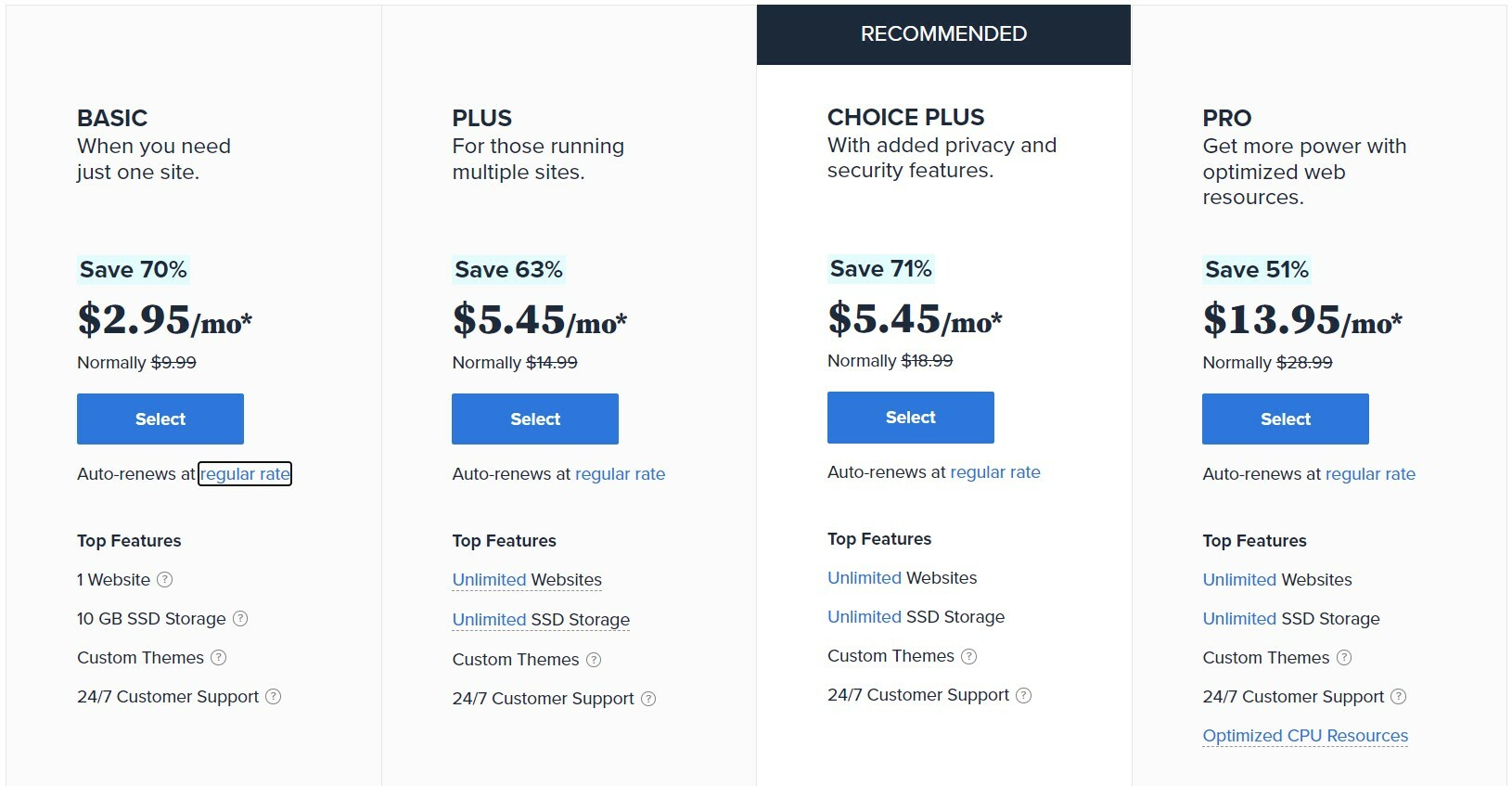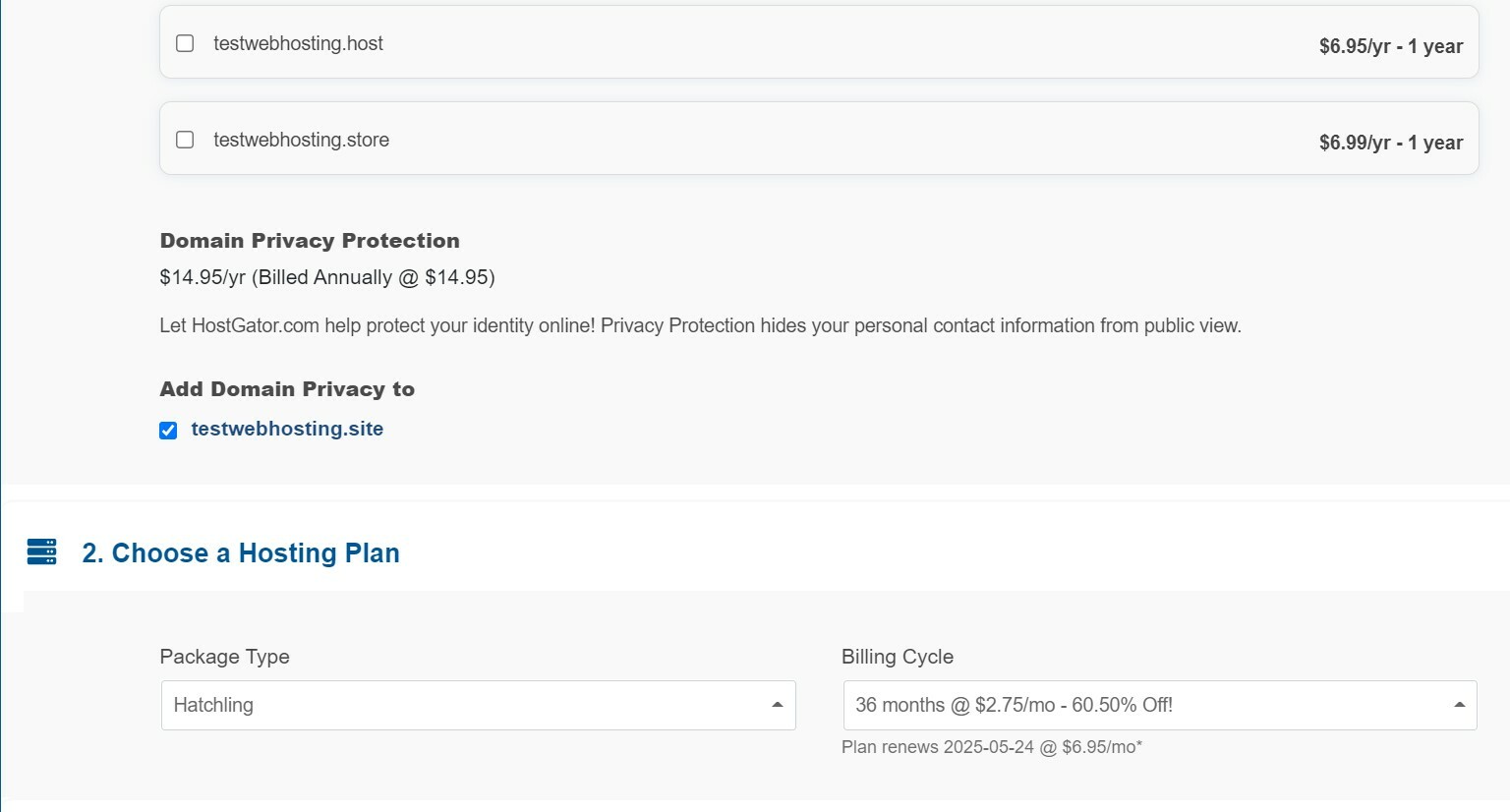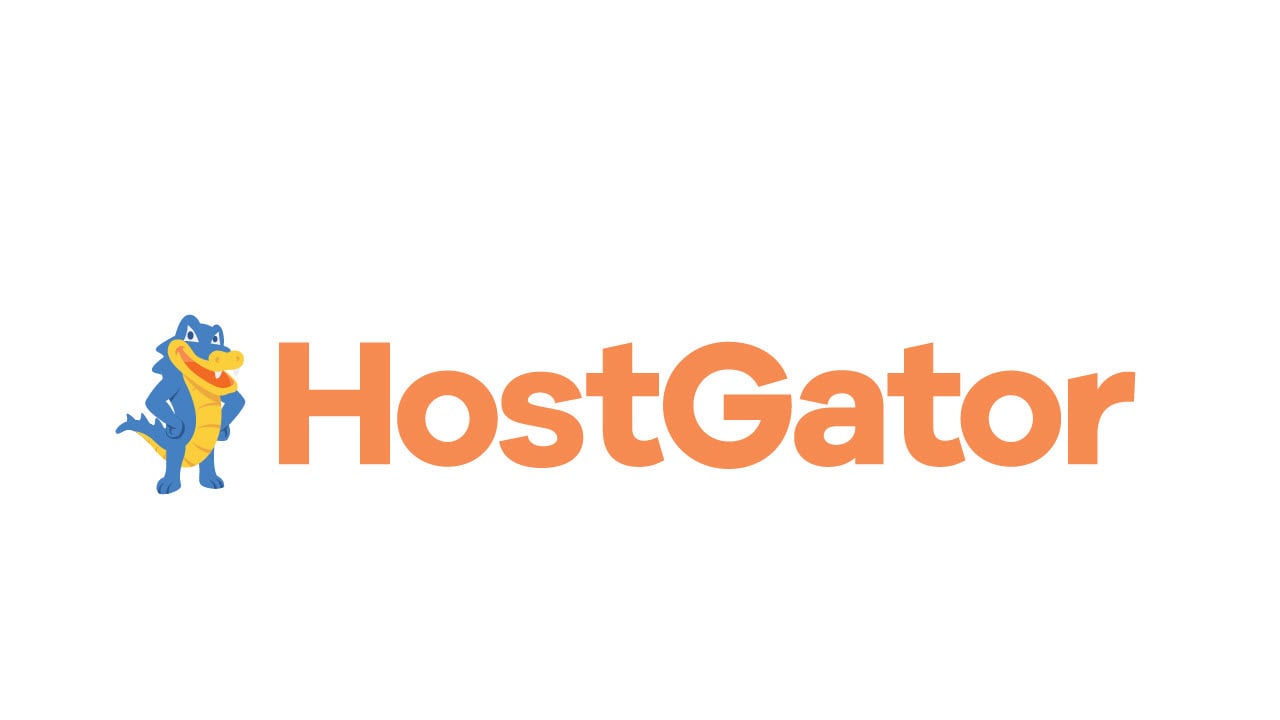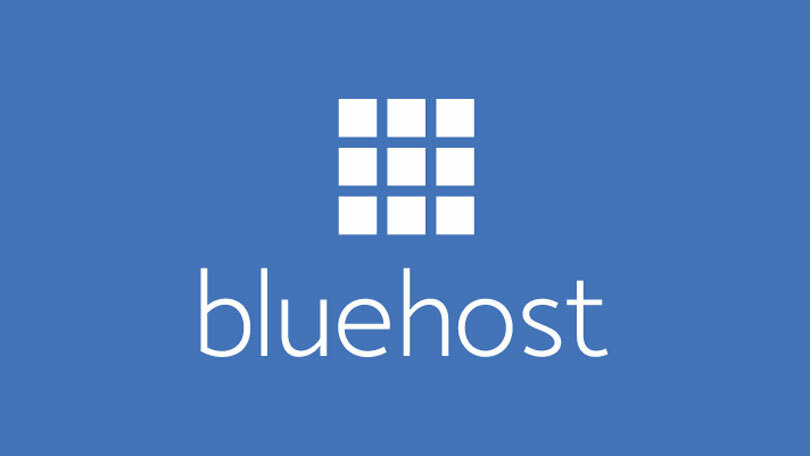
[ad_1]
Creating your own website is an extremely satisfying endeavor, especially as a budding blogger or a new business. However, the path to creating a website can be overwhelming and confusing, particularly for cash-strapped, first-time builders. There are many options to consider, including your potential site’s domain name, server type, and server operating system.
Unfortunately, web hosting services tack-on many add-ons features during the checkout process that makes building a site an even more complex and expensive affair. Follow these tips to avoid those add-on charges and lower your hosting costs.
Our Top, Recommended Web Hosting Services

1. You Don’t Need an Annual Hosting Contract
Web hosting services always present their best rates first, with the prices corresponding to annual or multi-year contracts. An attractive $2-per-month rate sounds great until you read the fine print, or head over to the checkout page and realize that the listed monthly fee applies to a lengthy year-long (or multi-year) commitment. Adjusting the plan length so that you’re charged on a monthly basis usually reveals a fee closer to the web host’s renewal rate, which is typically a much higher price. In fact, depending on the service and the type of hosting you need, you may not even find plans shorter than one year. This means you’re on the hook for a long-term bill that’s considerably higher than what you anticipated.
However, not everyone needs lengthy hosting commitments. If you want hosting for a short period of time, such as for a special occasion or perhaps a charity drive, a year-long hosting plan is a waste of your money. If you find yourself in that boat, the first thing you should do is search for a host’s monthly hosting rate. If you can’t find that, move on to another company. Don’t be afraid to shop around; there are many great web hosting services that charge on a month-to-month basis.
That said, keep in mind that shorter, month-to-month contracts forgo many of the bonus perks associated with the advertised deal. If a web host promises free domain registration or a SSL certificate, this only applies to the annual contract reflected on the plan page. Shorter terms lack these extras, so all you get is the hosting.
2. Be Wary of Free Domain Names
Web hosting services often bundle domain registration into their hosting packages. At a glance, this can save you a lot of money, since you don’t need to register a domain elsewhere at a potentially higher fee. However, those are often introductory rates that considerably increase in price. Typically, you’ll have the domain for a year; afterward, you must renew the domain with your hosting provider, usually at a significantly higher rate than if you directly purchased it from a registrar. What was a free feature during the first year could easily become a $15-$30 additional fee that gets tacked on to your web hosting renewal fee.
A free domain is not a bad thing, mind you. By all means, take advantage of the offer. That said, do your due diligence and find out what the domain renewal rate is from your web host. This information isn’t immediately obvious, and may require that you contact the web host’s customer support team for exact values. With that info, you should shop other registrars to see which ones offer better rates. Check out our domain registration guide for more details.

3. Avoid Private Domain Registration (If You Can)
Whenever you register a domain, your name and address is listed in the WHOIS database. If your domain is registered to a business address, then that’s not much of a concern. However, if it’s registered to you, any interested people will know where you live.
Most web hosts don’t include this privacy protection for free. HostGator, for example, does not include this protection with its included domain. Instead, it’s a $14.95 annual charge. However, if you only need short-term hosting and don’t mind having your address in a public database, you can build a website without this privacy protection and save money.
4. Decide If You Truly Need an SSL Certificate
Secure Sockets Layer (SSL) is fairly standard internet tech that secures the web connection between the server and client sides. This is a useful feature, particularly if you want to sell goods or collect visitor information via a web form. SSL encryption is so common that many visitors feel more secure when a URL features that familiar HTTPS and lock icon in the address bar. In fact, many browsers now warn users if they are venturing onto a page without SSL security, which may discourage potential visitors from sticking around.
Recommended by Our Editors



That said, SSL is commonplace, but it’s not necessary. If you’re creating a hobbyist or purely informative blog, this level of security is unnecessary. On top of that, SSL certificates are potentially pricey. They wildly vary in price, from free (typically for a year upon signing up for hosting) to hundreds of dollars per year.
5. You Don’t Need Every Security Option
Beyond SSL certificates, web hosting services offer additional security options, such as malware detection, daily website backups, site monitoring, and DDoS protection. Some hosting services include this as part of the annual subscription, and others include security features you can add to your subscription piecemeal.
If your prospective website will handle valuable or sensitive data, such as client credit card info, then live security monitoring should be at the top of your security concerns. However, you could potentially forgo certain security aspects altogether if you aren’t running a business or handling valuable data. For example, you can manually backup a website yourself, instead of paying Bluehost $2.99 per month.
For more on web hosting, check out 5 Things You Need to Know About Web Hosting Before Signing Up for an Account. Also, be sure to take a look at some of the best website builders we’ve reviewed, as those highlighted services offer hosting and security features that you should consider.
[ad_2]
Source link : https://www.pcmag.com/how-to/smart-ways-to-avoid-sneaky-web-hosting-fees



